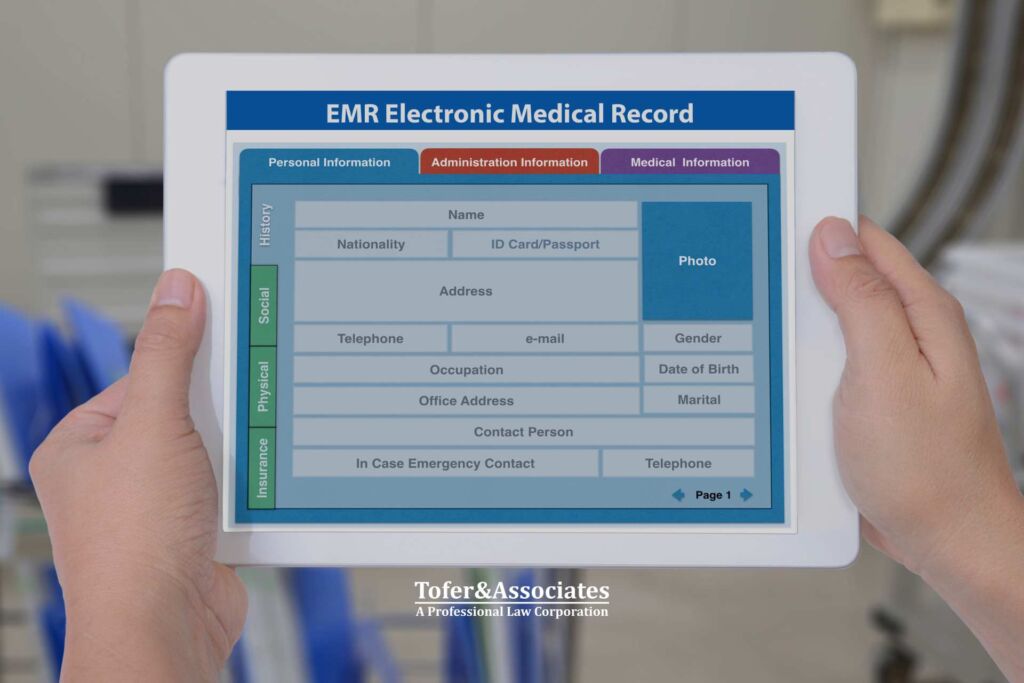18 Important Questions to Ask Your Personal Injury Lawyer
When you or a loved one is injured in an auto accident, motorcycle crash, bird or lime accident, Uber or Lyft accident, or any kind of the common types of personal injury incidents in California, life takes a drastic turn. Faced with swift and tough decisions, one of the most crucial is choosing a personal injury attorney.
Negligence often underlies such cases, and the right attorney will not only pursue justice and compensation but also offer comprehensive support.Therefore, the decision to select a personal injury attorney to represent you is crucial and requires well-informed choices. Spare no time or resources by researching them thoroughly and asking any questions you may have to ensure they are the right fit.
Table of Content

It’s worth emphasizing that such a pivotal decision can be instrumental in the success of your case, securing the deserved compensation without going to court. In the event of legal proceedings, you can be confident of having all the elements to win the case without significant hurdles.
Essential Questions to ask a Personal Injury Lawyer
Asking the right questions can provide insights into an attorney’s experience, practice, and capability to handle your case. Tofer & Associates now shares 18 fundamental questions to ask a lawyer practicing personal injury law in California.
1. What are your fees?
Certainly, it’s crucial to discuss fees with a personal injury attorney to ensure transparency and avoid any surprises. Most personal injury attorneys work on a contingency fee basis, meaning they only get paid if you win your case.
Typically, they take a percentage of the settlement or court award. It’s essential to understand the percentage they charge and any additional costs related to the case.
A good answer would include a clear explanation of the contingency fee structure and an outline of any potential additional expenses. Transparency in fee discussions is a sign of a trustworthy attorney.
2. Do you have a contingency fee? If so, what is it?
This question is crucial for a victim of personal injury to understand the financial arrangement with their attorney. A contingency fee means that the attorney only gets paid if they successfully recover compensation for the client. It’s essential for victims because it allows them to pursue legal action without upfront costs.
A good answer would include details about the attorney’s contingency fee percentage, typically ranging from 30% to 40%. The attorney should explain that they only get paid if they win the case and recover compensation for the client. It’s important to clarify if the percentage may change if the case goes to trial.
Additionally, the attorney should outline any potential additional costs, such as court fees or expert witness fees, and how they will be handled.
Overall, transparency in discussing the contingency fee ensures the client understands the financial arrangement and can make informed decisions about moving forward with the legal representation.
3. Will I be responsible for any costs if I lose?
As a victim of a personal injury, asking about potential costs if you lose is crucial to understanding your financial liability in the case. In most personal injury cases, attorneys work on a contingency fee basis, meaning they only get paid if you win.
If you lose, a good personal injury attorney should not charge you for their legal services. However, it’s essential to clarify this upfront and ensure that there are no hidden fees or costs associated with a loss.
A transparent and honest answer from the attorney would emphasize that you won’t be responsible for their fees if the case is unsuccessful.
4. If my case does not settle, will you take it to trial? Will the compensation fee change?
As a victim of personal injury, asking whether your attorney is prepared to take your case to trial is essential. This question helps gauge the attorney’s commitment to pursuing your claim to the fullest extent if a settlement cannot be reached.
A good answer would convey the attorney’s willingness and capability to go to trial if necessary, demonstrating their dedication to securing the best possible outcome for you. Additionally, they should clarify whether their contingency fee remains the same regardless of a trial or if any adjustments would occur in the event of litigation.
This ensures you have a comprehensive understanding of the potential legal process and associated costs.
5. What is your assessment of my case?
As a personal injury victim, asking an attorney about their assessment of your case is crucial for several reasons.
- Understanding viability: It helps you understand the viability of your case. A skilled attorney should be able to provide an initial assessment based on the facts you present.
- Legal Expertise: It demonstrates the attorney’s legal expertise. A good answer involves a thorough evaluation of the facts, the identification of legal issues, and an explanation of potential challenges and strengths.
- Strategy Discussion: A good attorney will mention potential strategies for your case. This may include identifying liable parties, assessing the extent of damages, and outlining a preliminary plan for pursuing compensation.
- Building Trust: Transparent communication fosters trust. A reliable attorney should be upfront about the strengths and weaknesses of your case, managing your expectations realistically.
A good answer involves a detailed and honest assessment, giving you confidence in your attorney’s understanding of your situation and their capability to represent you effectively.
6. What facts in my case are you worried about, and what can we do about them?
Asking an attorney about their concerns regarding the facts of your case is essential for a victim of personal injury.
Reason: Identifying Weaknesses: This question helps identify any potential weaknesses or challenges in your case that the attorney may have identified.
What to Expect in a Good Answer:
- Honest Assessment: A good attorney will provide an honest assessment of potential challenges or weaknesses in your case.
- Strategic Solutions: They should offer strategic solutions or plans to address and overcome these concerns.
- Open Communication: A reliable attorney will maintain open communication, discussing the steps and measures needed to strengthen your case.
This question facilitates a transparent discussion about the case’s potential challenges and enables the attorney to demonstrate their commitment to addressing and overcoming these issues.
7. How long have you been handling personal injury cases?
This question is vital for several reasons. First and foremost, the experience of an attorney directly correlates with their ability to navigate the complexities of personal injury cases.
An attorney with substantial experience is likely to have encountered various situations, honing their skills in negotiation, litigation, and understanding the intricacies of personal injury law.
A good answer to this question would include specific details about the attorney’s years of practice in personal injury law. They may highlight successful cases similar to yours, demonstrating a track record of favorable outcomes.
A seasoned attorney can offer insights into the legal process, potential challenges, and effective strategies tailored to your specific situation. Choosing an experienced personal injury attorney increases the likelihood of a successful case resolution.
8. How many cases like mine have you handled?
The reason for this question is to assess the attorney’s expertise and track record in handling cases and personal injury lawsuits that share similarities with yours.
A good answer would include information about the attorney’s experience with cases like yours, highlighting successful outcomes, settlements, or verdicts.
An experienced attorney who has successfully handled cases similar to yours is more likely to understand the complexities involved, have insights into the legal strategies that work, and can navigate potential challenges effectively.
Their past experience serves as a valuable indicator of their capability to handle your case and pursue a favorable outcome.
9. Who’s going to handle my case?
The question of who will handle your case is crucial, as it directly impacts the quality of legal representation you’ll receive. You want assurance that an experienced and qualified personal injury attorney will personally handle your case rather than delegating it to less experienced staff.
A good answer would include information about the attorney who will directly handle your case, emphasizing their experience and expertise in personal injury law.
It’s beneficial to know that the attorney handling your case has a successful track record, understands the complexities of personal injury claims, and is committed to providing you with personalized attention.
This ensures that your case is in capable hands and increases your confidence in the legal representation you’re receiving.
10. How often will I get updates?
It’s crucial to ask about the frequency of case updates for several reasons. First, staying informed about the progress of your case helps alleviate anxiety and uncertainty. It allows you to have a clear understanding of what is happening and what steps are being taken on your behalf.
A good answer from a personal injury attorney would include a commitment to regular communication. They should explain their communication process, detailing how often you can expect updates, whether through phone calls, emails, or scheduled meetings.
A reliable attorney will prioritize keeping you informed of key milestones, changes, or developments in your case. Open and consistent communication is a positive sign that your attorney is actively managing your case and is dedicated to keeping you well-informed throughout the legal process.
11. How long could it take to resolve my case?
Asking about the estimated timeline for resolving your case is crucial for managing expectations and planning. The timeline for personal injury cases varies based on several factors, including the complexity of the case, the extent of injuries, and the legal processes involved.
A good answer from your personal injury attorney would involve a realistic estimate based on their experience with similar cases. They should explain the stages of the legal process, potential obstacles, and any factors that could expedite or delay the resolution.
Keep in mind that providing an exact timeframe can be challenging, but an attorney who communicates openly about the process demonstrates transparency and a commitment to keeping you informed throughout the journey.
12. What happens if I don’t want to settle?
Asking about the consequences of not settling is crucial because it helps you understand the potential scenarios and legal implications of your case. A good answer from a personal injury attorney would involve an explanation of the options available if you choose not to settle.
They should discuss the possibility of going to trial and the potential outcomes, including the risks and benefits associated with that decision. This information empowers you to make an informed choice based on your preferences and the attorney’s guidance.
It’s important to have a clear understanding of the possible paths your case may take, ensuring that your legal strategy aligns with your goals and interests.
13. What is your strategy for getting the full value of the case?
This question is crucial for a victim of personal injury to ask because it sheds light on the attorney’s approach and commitment to maximizing compensation for the client.
A good personal injury attorney should have a well-thought-out strategy that demonstrates their understanding of the case’s intricacies and their dedication to securing the best possible outcome.
A good answer from a personal injury attorney would involve:
- Case Assessment: The attorney should conduct a thorough evaluation of the case, considering all relevant details, evidence, and potential challenges.
- Legal Expertise: Demonstrating a deep understanding of personal injury law and relevant statutes, allowing them to build a strong case on your behalf.
- Negotiation Skills: Highlighting their negotiation skills to engage with insurance companies or the opposing party, aiming for a fair and comprehensive settlement.
- Litigation Plan: If necessary, outline a clear plan for litigation, showcasing their preparedness to go to trial if a fair settlement cannot be reached.
- Communication: A commitment to keeping you informed throughout the process, ensuring you understand the strategy and are comfortable with the proposed approach.
14. How much is my case worth?
Asking about the worth of your case is essential to setting realistic expectations and planning for the future. A good attorney will explain that determining the value of a case involves various factors, including the extent of your injuries, medical expenses, lost wages, pain and suffering, and other damages.
A good answer should include:
- Assessment of Damages: The attorney should discuss the specific damages relevant to your case, such as medical bills, property damage, and lost income.
- Consideration of Pain and Suffering: A skilled attorney will explain that pain and suffering are also factored into the valuation, as they are legitimate components of personal injury claims.
- Case Specifics: A personalized response that considers the unique aspects of your case. Every case is different, and an attorney should tailor their explanation to your circumstances.
- Contingency Fee: A good attorney will likely tie the case’s worth to their fee structure, emphasizing that they are motivated to secure the maximum compensation for you since their fees are often contingent on the outcome.
15. How involved will I be in my case?
This question is crucial as it helps set expectations and ensures that they understand their role and level of involvement throughout the legal process. A good answer from a personal injury specialist would emphasize collaboration and communication.
The attorney should explain that they will handle the legal complexities, paperwork, and negotiations, but the victim’s input and cooperation will be essential for a successful outcome.
A good answer should include:
- Clear Communication: The attorney should assure the victim that they will be kept informed at every stage of the case. Regular updates, whether through meetings, calls, or emails, should be expected.
- Informed Decision-Making: The victim should be actively involved in major decisions, such as whether to settle or go to trial. The attorney should provide guidance and options, allowing the victim to make informed choices.
- Gathering Evidence: The victim may be asked to provide information, documentation, or participate in interviews to strengthen the case. The attorney should explain the importance of such contributions.
- Accessibility: A good answer would include assurances that the attorney and their team are accessible for any questions or concerns the victim may have.
16. How often will I get updates on the progress of my case?
A good personal injury attorney understands the importance of communication and will provide regular updates on the progress of your case. You should expect clear communication regarding any developments, negotiations with the opposing party, or court proceedings.
Regular updates ensure that you are aware of the current status of your case, helping you make informed decisions and providing peace of mind during what can be a stressful time.
A reliable attorney will establish a communication plan tailored to your preferences and keep you informed at key milestones.
17. How many clients’ cases do you handle at a time?
This question is important because it gives insight into the attorney’s workload and how much attention they can dedicate to your case. You want an attorney who can manage a reasonable caseload, ensuring they have enough time and resources to focus on your specific needs.
A good answer would involve transparency about their current caseload, demonstrating that they have the capacity to give your case the attention it deserves. It’s essential that the attorney can balance handling multiple cases without compromising the quality of representation for each client.
Look for an attorney who values personalized attention and is committed to managing their workload effectively to provide the best possible service for your case.
18. Can you give me examples of your recent successes?
Asking for examples of an attorney’s recent successes is crucial for several reasons. Firstly, it provides insight into the attorney’s experience and track record in handling cases similar to yours.
A successful personal injury attorney should be able to share specific cases they’ve won or settlements they’ve secured, demonstrating their ability to navigate complex legal matters effectively.
A good answer to this question would involve the attorney sharing details of recent cases, outlining the types of injuries involved, the legal challenges faced, and the outcomes achieved.
They may discuss the compensation obtained for their clients and highlight instances where they negotiated favorable settlements or won substantial awards in court. This information helps you gauge the attorney’s competence and success in representing clients with similar personal injury claims.

Partner with a Skilled California Personal Lawyer Today
Knowing the right questions to ask a personal injury lawyer is essential in choosing the attorney who will best represent your interests and secure fair compensation for your case. Tofer & Associates has years of experience in personal injury cases.
Our attorneys are equipped with the skills and knowledge to help you get the compensation you deserve. Contact us by calling (800) 291-9000 or by filling out our contact form.
 ALEX TOFER
ALEX TOFER
Alex Tofer, the founder and managing partner of Tofer & Associates since 2001, specializes in personal injury cases but also adeptly represents clients in premises liability lawsuits and lemon law matters throughout California. For inquiries regarding this article or legal assistance, please feel free to reach out to us.




